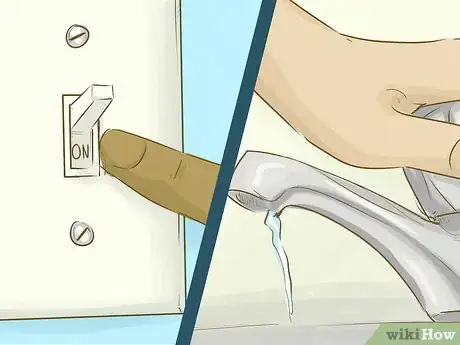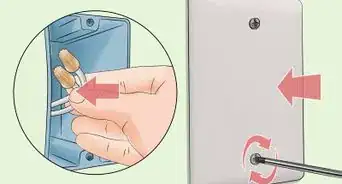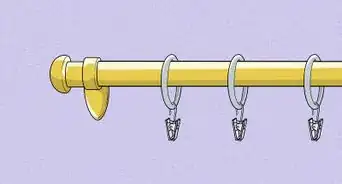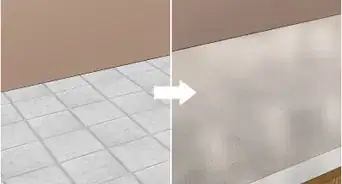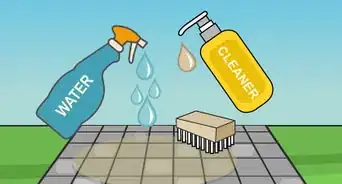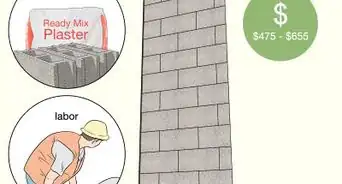This article was co-authored by GreatBuildz. GreatBuildz is a free service that matches homeowners with reliable, pre-screened general contractors. GreatBuildz was founded by a team of real estate and construction experts who believe everyone deserves to find a great contractor, have a stress-free renovation, and enjoy their beautiful new space. GreatBuildz connects homeowners with reputable contractors who passed their rigorous screening process and signed their code of conduct. GreatBuildz also individually selects contractors for the specific project and provides ongoing support to ensure everything goes smoothly.
There are 10 references cited in this article, which can be found at the bottom of the page.
This article has been viewed 26,663 times.
Building or renovating a home can cost a lot of money, but one way to save is to serve as your own general contractor. You’ll hire your own subcontractors (called “subs”) to do specific jobs, such as build walls or install plumbing. Keep reading to learn everything you need to know to successfully subcontract your own home.
Steps
Coming Up with a Plan
-
1Set your timetable. Estimate when you want your construction to be finished. You’ll then need to work backwards to come up with a start date. Be prepared for many delays.[1] For example, materials might not arrive on time or the weather might not cooperate. In particular, you can’t pour concrete for the foundation if the weather is too wet.[2]
- Talk to someone who has had their home built or remodeled to get an estimate for how long it takes. Generally, a new home can be built in seven months. However, the time will depend on your location and other factors, such as the complexity of your home design.
-
2Draw up your plan. Whether you are remodeling a home or building one from scratch, you should have plans and specifications drawn up. Look online for house plans or consult with a designer or an architect.[3]
- Find an architect by asking someone who has recently built a home or by contacting a local architecture institute or society.[4]
Advertisement -
3Identify your financing sources. Chances are you’ll have to borrow money from a bank or credit union. Talk to lenders to see how much you can borrow, since some might not lend you more than 80% of the cost if you act as your own contractor.
- Banks will also need to see your specifications, bids, and itemized lists of costs before they finalize your loan. However, they can prequalify you using estimates.
-
4Set aside sufficient time. You can spend up to 35 hours a week for several months supervising the construction of your home. Depending on the size of the project, you might spend longer. Figure out whether you have enough time to dedicate to this task.
- You might be able to split duties with your spouse or a close friend, but you’ll need to have excellent communication.
Hiring Subcontractors
-
1Identify the subcontractors you need. Subcontractors usually have a specialty. You should identify what work you need done so you can find the appropriate subcontractor. The following are some of the more common types:
- Excavators: fill, cut, or move earth so you can pour your foundation.
- Masons: build block foundations, retaining walls, walkways, and anything that involves bricks or blocks.
- Framers: build the shell atop the foundation using lumber, sheet materials, and trusses.
- Roofers: prepare the roof underlay and then install roofing material on top.
- Plumbers: install water heating and plumbing fixtures.[5]
- Electricians: install wires hidden from view, as well as fixtures and electrical switches.[6]
- Siding: install siding on the outside of the building and may also handle exterior trim.
-
2Obtain referrals. Ask someone who has had work done on their home if they would recommend their subcontractors. Write down the sub’s name and number. Ask generally how much the sub charged.[7]
- If you see a house being built in your neighborhood, stop in and talk to the general contractor. Explain your situation and ask for the names of the subcontractors.
- You can also ask for referrals at the lumberyard or from specialty suppliers. For example, if you need a tiler, then you can ask someone who sells specialty tiles.
- Get at least three referrals so that you can solicit bids from many different people.
- If you can't get any in-person referrals, check out sites like Angi or Yelp.[8]
-
3Solicit bids. Give the subs a description of the project, including written specifications and drawings. Ask them to submit a bid in writing. Subcontractors should provide an itemized bid that breaks out the cost of materials and labor.[9]
-
4Research each subcontractor’s experience. You want to hire subs who can do a good job and are sufficiently experienced. Subs should talk about their experience when submitting a bid. However, if they don’t, you can call them up and ask. Request three references and call them up.[12]
- Ideally, you will hire a sub who has handled multiple projects that are the same size and scope as yours. For example, if all you’re building is an addition, you don’t need subs who typically work on huge projects. They might not take yours as seriously.
-
5Ask for audited financial statements, if you want. A sub that is financially distressed might overcharge you or go out of business before finishing the job. You might want to ask each subcontractor to submit audited financial statements.
-
6Research the subcontractor’s reputation. Go online and type the subcontractor’s name. Check to see whether there have been any complaints. Remember to take complaints with a grain of salt, since it is very easy to complain anonymously online. However, look for patterns. If multiple people complain that the sub doesn’t show up to work, then there might be a real problem.
- You can check the sub’s reputation on the Better Business Bureau.[13]
- In addition, check whether they’ve ever been sued. Visit the county courthouse where the sub has their principal place of business. You can search for court records, which are public documents. If the sub has been sued, pull the case file and read the complaint. Also find out how the case was resolved.
-
7Analyze the bids. You should avoid automatically hiring the subcontractor who submits the lowest bid.[14] For example, the bid might be too low, in which case the sub might abandon the project when the money runs out.[15]
- You might not know whether a bid is too low. Talk to an experienced contractor to get a sense of what is a reasonable bid.
- You also have to work around people’s schedules. A good sub is usually very busy, but you can’t hold up an entire project for six months as you wait for them to have an opening. Make sure the sub’s availability works with your schedule.
-
8Hire your subcontractors. Call up the subcontractor and tell them you want to hire them. Confirm the bid and the dates of availability. Also tell them you will need to confirm they are licensed and insured before you go ahead and sign a contract.
- The sub should send you a copy of their license. You can confirm it is still valid by contacting your state’s licensing agency.
- The sub should have workers’ compensation and general liability insurance. Ask to see the policies to confirm they are still valid.
- You can get a sample subcontractor agreement from one of the three contracting associations: Associated General Contractors of America, Associated Specialty Contractors Association, or American Subcontractors Association. Look for phone numbers online.
-
9Buy insurance before work is started. General contractors are legally responsible for injuries on the worksite. Since you’re acting as your own general contractor, you should buy general liability insurance. Talk to an insurance broker about your options.
- Your lender might require that you carry builder’s risk insurance. It covers the home materials (but not bodily injury).
Handling the Project
-
1Apply for a loan. If you need a loan, gather your required paperwork and contact a lender. Review the terms of the loan before signing. Pay attention to the interest rate and any prepayment penalties.
-
2Get required permits. The permitting process can be confusing for the inexperienced. Unfortunately, you can’t expect subs to get the permits for you—that’s your job. Generally, you should contact your local construction department or town hall for more information.
- You’ll also be responsible for scheduling inspections to make sure you are in compliance with the housing code.[16] Make sure that you understand when these inspections must occur.
-
3Track materials purchases. Someone should be on the jobsite to document all delivery slips. If you have returns, you must account for them also. Losing track of the materials you receive is often a source of cost overruns.
- Ideally, you can track delivery slips electronically. Scan them so that you can access delivery slips and inventory quickly.
- Try to plan ahead when you order your materials. Material delays can really hold up your project.[17]
-
4Schedule your subcontractors properly. Homes need to be built or renovated in a sequence. For example, you can’t have electricity installed if you don’t have the foundation poured and the walls built. You should have paid attention to availability when you hired your subs. Now you need to come up with a schedule.
- Don’t expect subs to show up exactly when you schedule them. They are juggling other jobs, too, and might overrun on another job.
- Pad some time to account for unforeseen delays. However, you might still end up having to wait weeks for a sub to show.
-
5Review the work. You need to find the relevant building code and learn it by heart. When you check the work, make sure that it is built up to code.
- Most subcontractors are highly skilled, so you probably won’t have any problems with the quality of their work. However, subs sometimes don’t pay attention to how their work affects other parts of the house. For example, a plumber might cut large notches in the floor or wall and end up collapsing them in the process.
-
6Pay promptly. You’ll get subcontractors to show up if you promise to pay promptly when work is completed—and then deliver. Protect your reputation. When you get a good reputation for paying promptly, subs will be more anxious to show up at your worksite.
-
7Send your subcontractors appropriate tax forms. In the U.S., the IRS requires that you send a sub a 1099-MISC form if you paid them at least $600 during the year. These forms must be delivered by January 31st.[18]
References
- ↑ http://www.denverpost.com/2010/03/05/the-nuts-and-bolts-of-being-your-own-general-contractor/
- ↑ https://www.safewise.com/blog/home-building-timeline-keep-sane/
- ↑ http://www.denverpost.com/2010/03/05/the-nuts-and-bolts-of-being-your-own-general-contractor/
- ↑ https://www.washingtonpost.com/news/where-we-live/wp/2017/05/09/how-to-find-the-right-architect-for-your-home-renovation/?utm_term=.f4c9ff42a01f
- ↑ GreatBuildz. Contractor Matching Service. Expert Interview. 25 November 2020.
- ↑ GreatBuildz. Contractor Matching Service. Expert Interview. 25 November 2020.
- ↑ GreatBuildz. Contractor Matching Service. Expert Interview. 25 November 2020.
- ↑ GreatBuildz. Contractor Matching Service. Expert Interview. 25 November 2020.
- ↑ GreatBuildz. Contractor Matching Service. Expert Interview. 25 November 2020.
- ↑ GreatBuildz. Contractor Matching Service. Expert Interview. 25 November 2020.
- ↑ GreatBuildz. Contractor Matching Service. Expert Interview. 25 November 2020.
- ↑ http://www.homeadvisorhomesource.com/hire-dependable-subcontractor-4-simple-steps/
- ↑ http://www.denverpost.com/2010/03/05/the-nuts-and-bolts-of-being-your-own-general-contractor/
- ↑ GreatBuildz. Contractor Matching Service. Expert Interview. 25 November 2020.
- ↑ http://constructionlawva.com/should-general-contractor-tell-sub-that-its-bid-too-low/
- ↑ http://www.oregon.gov/CCB/Documents/pdf/property_owner%20adopted.pdf
- ↑ GreatBuildz. Contractor Matching Service. Expert Interview. 25 November 2020.
- ↑ https://www.irs.gov/pub/irs-pdf/f1099msc.pdf

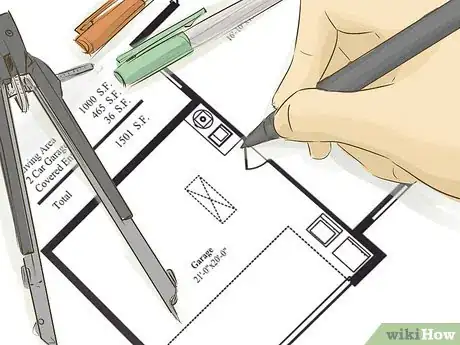






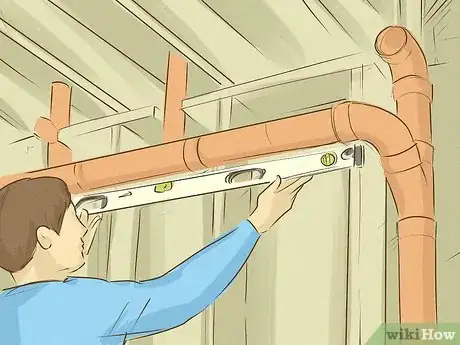

-Step-1.webp)







